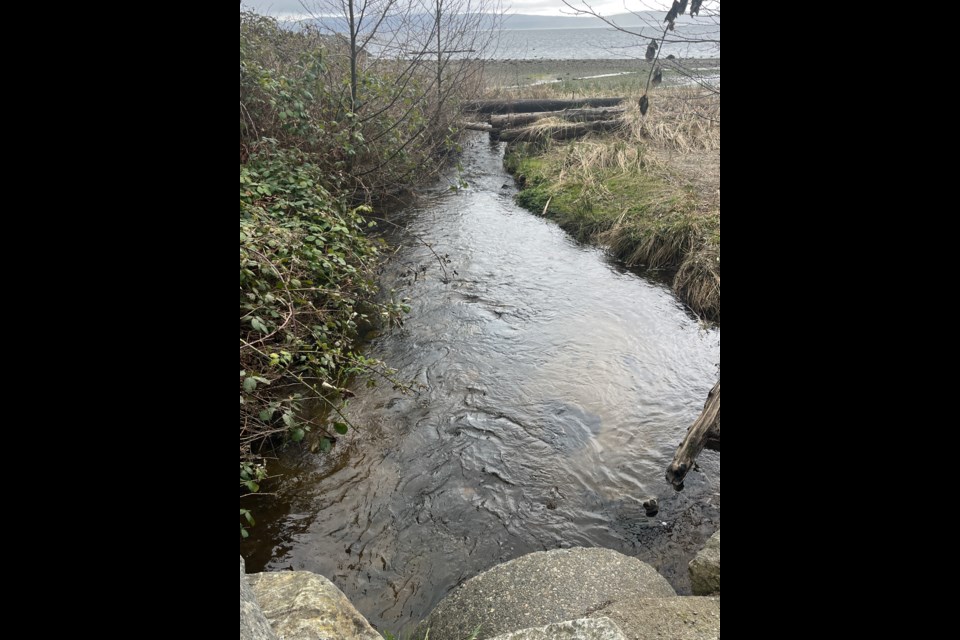City of Powell River, parks, recreation and culture department, Powell River Salmon Society and Fisheries and Oceans Canada (DFO) are revamping a joint-venture, to work together and boost local fish stocks.
On April 21, from 3:30 to 5 pm, at the creek (McGuffie) that runs through Willingdon Beach Campsite, they will host a “cup release” for children and families to free chum salmon fry into the waterway.
“Last year we did an inaugural run, with 5,000 released,” said city parks supervisor Mike Kaban. “We want to reestablish an in-town run, where people can interact, and see the fish a bit more; this year, we are going to imprint 70,000 chum at Willingdon Beach Campsite creek.”
For 10 days before the release, the salmon will be held in a water trough at the campsite. This will improve the likelihood of the salmon returning to the creek.
“We have the property, and a rearing trough set up in the campsite, and we have permission from DFO, to use the water from the creek,” said Kaban.
The fish will migrate all the way to the gulf of Alaska.
“Chum have a four-year life cycle, and they will come back to Willingdon creek,” said Tyler Bartfai, Powell River Salmon Society hatchery technician and education coordinator.
The society runs three fish hatcheries in qathet Regional District.
“We want to give [the chum] a fighting chance,” stressed Bartfai.
The number of chum salmon in the coastal regions has been a concern; the return has been substantially lower on the Sunshine Coast, and the Vancouver Island inside pass.
“The chum are a beneficial fish from an ecosystem perspective; the biomass they bring in helps convert the biomass of the ocean, and then, in-turn adds nutrients to the stream,” said Bartfai. “They are very much a cornerstone species. The fish have a lot of nitrogen, and after they spawn, they die.
“Their carcass has a lot of nutrients for the soil and plants; all the algae and invertebrates rely on that as well. In the spring, juvenile salmon also feed on the carcasses.”
Powell River Salmon Society is inviting the public to the “FryDay” event to release salmon and celebrate Earth Day, which is the following day.




